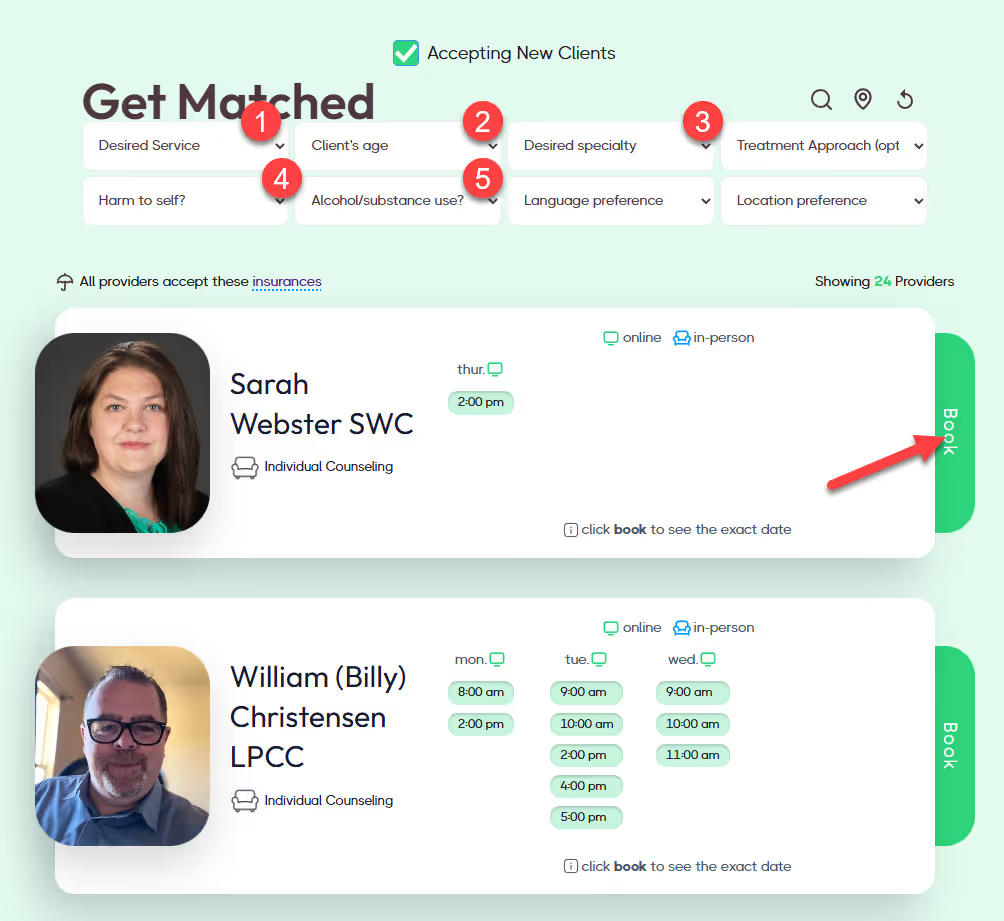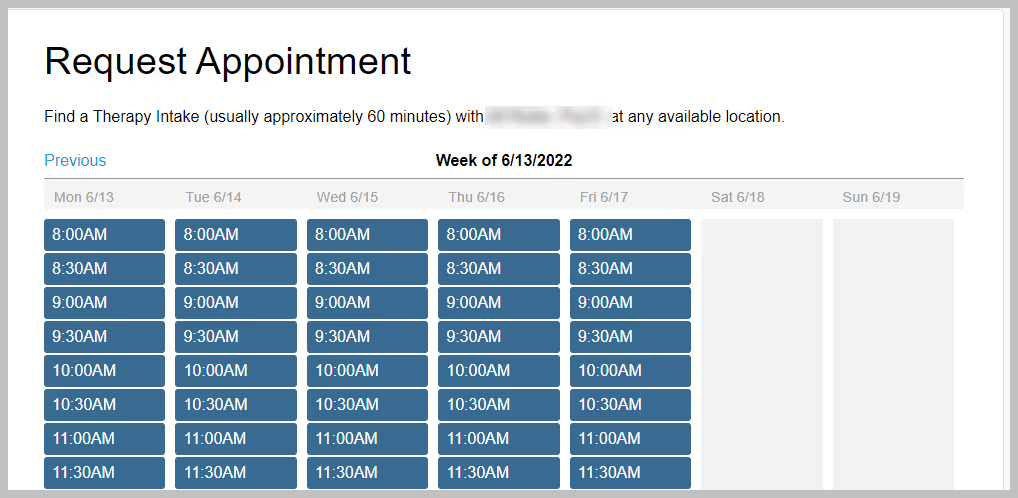Looking for a supportive listener in Aurora, CO? Our counselors are here to assist you in overcoming life's challenges through both in-person and online sessions. We accept a variety of insurance plans, including Medicaid, to make therapy accessible.
Book a Session
Embark on a journey of self-discovery and relationship harmony with our expert services. From the intricacies of couples therapy to the personalized touch of individual and psychiatric care, we're here to ensure you're covered from every angle.
If you are new to Overcomers (never booked a session) you can schedule your first appointment on our Directory!

If you are an existing client with access to the Client Portal already, and would like to schedule another session with your provider, follow these steps:


As an existing client, you have access to the Client Portal where you can manage all your appointments! To cancel an appointment, follow these steps:
When canceling and rescheduling appointments, please be mindful of our cancellation policy as you may be charged cancellation fees. Our cancellation policy states $110 will be charged if the appointment is canceled less than 24 hours in advance. If you can't make it to your in-person session, you can do a telehealth (over video) session. Please reach out to your therapist to switch from in-person to telehealth via Messages in the Client Portal.
If you do not have access to the Client Portal, you may complete this form to cancel your appointment.
Yes absolutely! You'll receive email and text reminders about your upcoming sessions.
The first step towards finding the right counselor is what we call 'Getting Matched.' Our Get Matched form will evaluate your needs and display a matching counselor or nurse practitioner that fits your needs. Answering these questions will help you narrow down your search to a few counselors who align with your needs.
We have multiple offices in:
View more details about these locations here.
Yes, absolutely!
We're thrilled to accept most major insurance plans, making it easier for you to focus on your well-being while we handle the paperwork.
Why wait? Book your spot now and decide if you want to meet face-to-face or screen-to-screen.
Get MatchedOur counselors are pros at turning challenges into growth. Ready to start your journey to a happier, healthier you? Let’s do this!